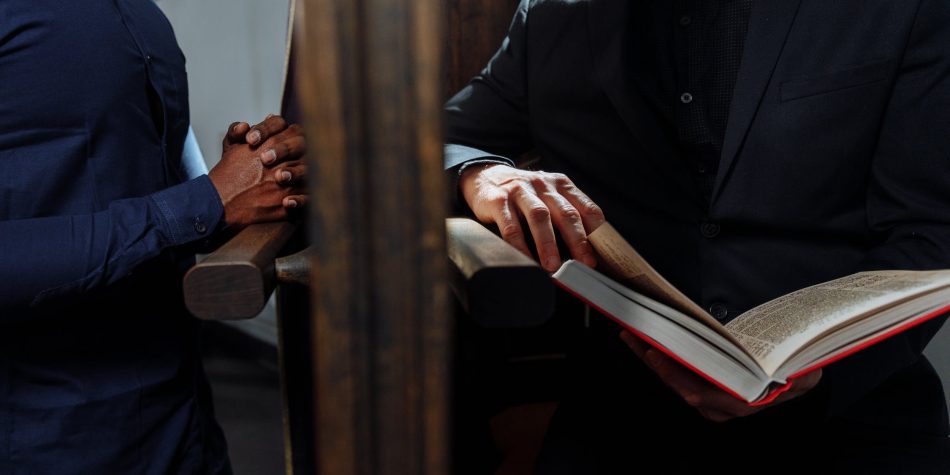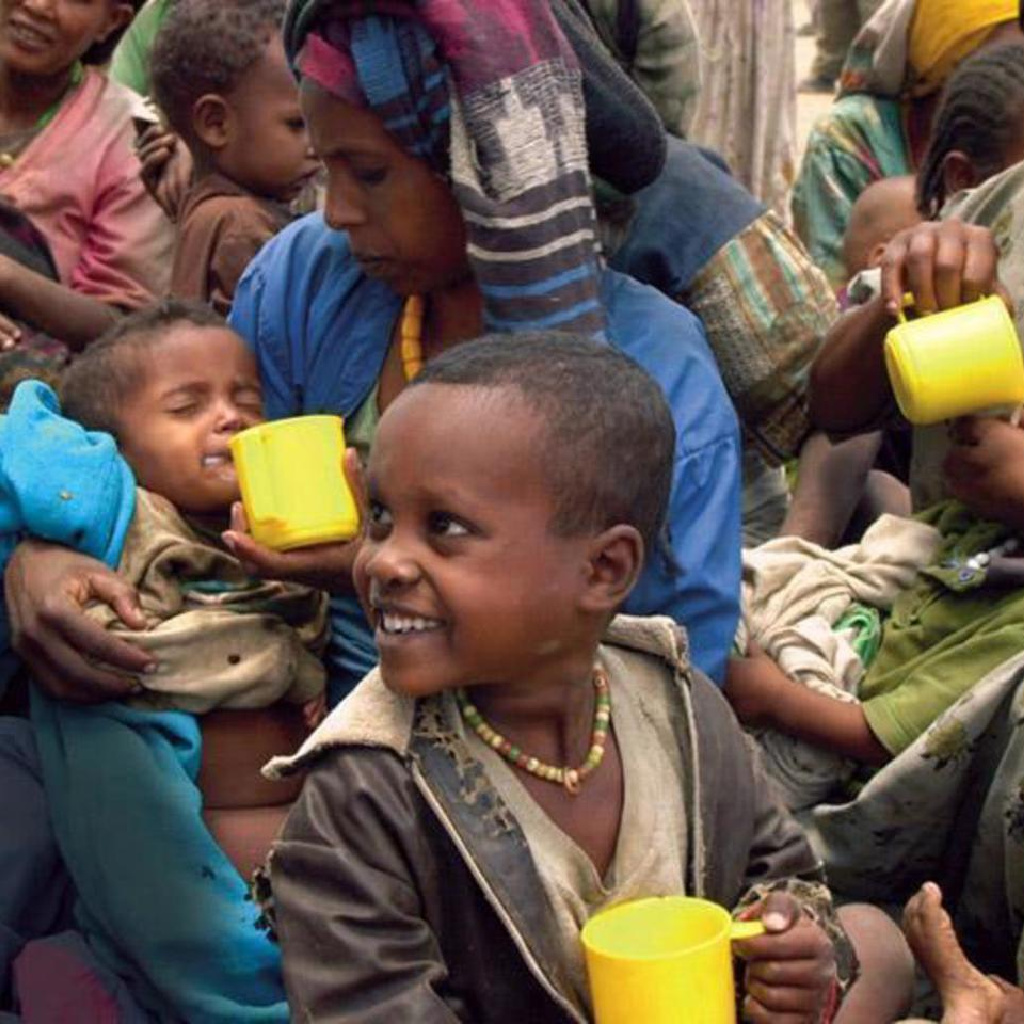My (Dave’s) mom was raised by an Irish Catholic mother. My Catholic mom and my Baptist dad met in the middle and were married in the Episcopal Church (where I was raised and served as an altar boy). I enjoyed a childhood that was blessed by some wonderful Catholic adults and kids. Growing up I was fortunate to be coached in various sports by wonderful Catholic men such as Joe Lordan, Tony Damato, and Manny Berreta. My best friend, Rob Guidi, and his family were Catholic. Mrs. Guidi, my second Mom, was very Catholic and crossed herself whenever she drove by St. Rita Catholic church, the church her family attended. I played for two seasons with Rob on the St. Rita team in the Catholic Youth Organization basketball league. An abiding memory is of the free throw ritual performed by Hoss Parnow, one of the best players in the league, who would stand at the free-throw line, toss the ball in the air with backspin, and would cross himself while the ball was in the air. Adding to the mystique, Hoss never seemed to miss.
Turning to more recent memory, in this article we present quotations from in-depth interviews with a number of Roman Catholic and Orthodox Christian (aka Eastern Orthodox) spouses, parents, and youth that we have interviewed as part of our American Families of Faith project.
Catholicism places a heavy emphasis on the relational nature and quality of human expressions and practices of faith. In that sense, the faith traditions of Catholicism place less emphasis on private, personal, individual beliefs and practices found in many Protestant traditions, while placing more emphasis on the communal nature of a body of believers. Catholicism teaches that the family is a “domestic church” and is “a communion of persons,” thus emphasizing both the internal and external expressions of family life lived within this faith tradition (Catechism of the Catholic Church, 1994: 589, Doubleday).
Families and family members are not just “for themselves,” they are part of a larger community and public expression of faith tradition. Catholicism emphasizes the interwoven nature of family and society. Parents and spouses are charged with creating a home where “tenderness, forgiveness, [and] respect” are taught as part of daily life (Catholic Church, 594) and where members acknowledge “communal responsibilities” to all persons in society (Catholic Church, 595). Catholicism places a heavy emphasis on the relational nature and quality of human expressions and practices of faith.
In Catholicism, forgiveness is further broadened to include formal priestly Confession and forgiveness as a communal act are steps toward restoration within the family, as well as the larger community. Catholicism acknowledges a reciprocal responsibility for family members to create “holiness” in one another by being “generous and tireless in forgiving one another” (Catholic Church, 595).
A study by Gassin proposed basic elements of Orthodox Christian views of forgiveness and reconciliation, including institutionalized opportunities for forgiveness, seeking forgiveness from others, and self-forgiveness. These elements, along with supporting theology and doctrine, suggest that religious beliefs and practices may influence family life by providing opportunities for reconciliation and relationship maintenance.
Further, among Romanian Orthodox Christian couples, a 2015 study by Rusu, Hilpert, Beach, Turliuc and Bodenmann found that supportive couple-level coping correlated with higher marital satisfaction and well-being, suggesting that religious involvement may positively influence marital relationships and individual well-being, consistent with previous work on other faiths.
Among the Roman Catholic and Orthodox Christian families we interviewed, participants indicated various ways religious beliefs, practices, and aspects of faith community offered or enhanced general life strengths. Martin, an Estonian Orthodox Christian husband, said:
[Religion] gives me a sense of accountability, to someone other than just me and [my wife]. [I am accountable to] God above. [I have] obligations to my family, and my obligations to my wife. [M]y church provides me those parameters, of what those obligations are. Without it, it would just be subjective, it would be me determining what is . . . right or wrong.
LeeAnne, a Catholic wife, said:
I think it’s our relationship with God [that] has made us try to please God in our relationships with each other and how we treat other people. In what we say, how we treat people, being kind to each other. . . . I think the relationship with God just keeps you more peaceful and more centered and treating people in a better way.
Alisa, a Hispanic Catholic wife, similarly shared how “God’s message” taught her to treat others:
The principle . . . that we learned from God’s message is not to be selfish. Be humble and caring for the other, and giving. . . . It’s not [so] much about your needs, but what is it you can do for others.
Antony, a Hispanic Catholic husband, said,
God is there. And if my family understands this [and] knows that God is there and [that] no matter what they do, God will still be there; that if they take one step towards Him, He’ll take three steps towards you; [that] you are never alone; [if we remember these things, then] no matter what happens . . . it will work out for you.
An African American Catholic wife named Ericka said,
You’re going to have trials and troubles. You have to work at it, but there’s also that underlying belief that the Lord doesn’t give you any more than you can handle. And as long as you know that the Lord doesn’t give you any more than you can handle, [then] you can handle the situation.
An Italian Catholic wife named Angela said,
I would say that [I] feel consoled . . . consoled by knowing the presence of God, God’s presence in my life. I’m not alone. . . . [A]s bad as I sometimes feel . . . I am, as a mother, or as a wife, [I still] feel like God’s presence is constant and steady and [that] God always loves me, and that’s consoling for me.
The three marital themes included (a) Religion promotes marital unity, (b) Prayer helps to avoid or resolve conflict, and (c) Faith encourages forgiveness. Participants’ verbatim data and voices are offered in illustration. Cindy shared:
We pray for our marriage. I have specific prayers for the Orthodox marriage. My spiritual father (clergyman) helps me with the marriage. It’s a part of our faith. [Also], the first and foremost commandment is to love God, [and then] to love your neighbor as yourself. [My husband] is my closest neighbor.
Several couples reported that prayer helped them to avoid or resolve conflict in their marriages. An Italian Catholic wife named Angela explained the importance of forgiveness in conflict:
[I]n times when we have conflict about anything . . . [we can say], “Let’s just stop.” . . . [T]hat ability to come together in prayer and ask for each other’s forgiveness [and] God’s forgiveness, and [the] discernment, and [the] direction is something that [helps us]. I don’t know how people can get through without having that.
Cindy, an Orthodox Christian wife:
In order for us to receive the divine mysteries, the holy mysteries of Communion, the blood and body of Christ, we cannot be angry with each other. We can’t be carrying a grudge. We are not allowed to approach the chalice if we’re mad at each other. . . [So] we . . . ask for forgiveness before . . . we go to communion.
Neal, Cindy’s Orthodox husband, confirmed:
We go to church in the car every Sunday. We . . . individually, each member asks every other member of the family [for] forgiveness. There are some weeks when I want to turn around and say, “No! Not this week! Sorry! No! Not after what you did this week!” [But failure to forgive is] not an option.
A Hispanic Catholic couple also discussed forgiving in relation to their religious practices:
Consuella: There’s a part in our Mass where it’s the sign of peace and you have to [forgive each other]. . . . [Y]ou can’t just ignore each other and . . . I think the grace of God helps [you] get to that forgiveness point.
Juan: It’s usually not within the context of the Mass itself that there’s this major reconciliation . . . that [usually happens] outside the Mass . . . [but] maybe there was a reading that really went right to your heart and right to the core.
Faith, a Catholic mother, said:
We pray together as a family. [My husband] Jake is so good about [it] at bedtime. [I don’t think he] has . . . missed a night, praying with the children, the boys in their room, because they’re in the same room, and then the girls. I think for them, it’s routine. And for them it’s . . . being a part of the family. I think that evens their day out.
A Hispanic Catholic father named Carlos said,
We try to make Sunday more family oriented. . . . For me, attending Mass on Sunday is one of the things we do religiously that I feel that keeps us together. I think [Sunday is] a time when we’re not talking, where we’re listening. We’re listening to a message that applies to all of us. I think that by sitting side by side, almost touching, aware of the presence of the others, while we are quiet and just focused on one particular scene, [this] allows us to get closer.
A 15-year-old Catholic son, Pedro, said,
When we say different things we want to pray for, like for the day, I know my parents are praying for the things that I need help with. I know that my Mom’s going to be praying for me too. And it give[s] me reassurance, and it just makes me feel better that we’re all family and we’re doing this all together as one.
An Italian Catholic mother said:
When we’re in a moment of conflict . . . that’s when I feel like I . . . pray the most, ‘cause I just feel like I really, really need it. And . . . when I’m feeling really angry, that’s when I pray the most, ‘cause I just, I need something to grab onto.
An Irish Catholic father named Brian said,
Proverbs says, “Good sense makes a man slow to anger” and it’s his “glory to overlook an offense.” And I need to see that every day. . . . I [tend to] overlook my sins but not [the sins of] others. But I’ll be in that conflict, and I will have to turn to my sons and say, “Peace be with you.” And they say “peace” back to me. They’re forgiving me for my multitude of omissions and commissions.
Angela, a Catholic mother quoted earlier, said,
[I tell God], ‘Restrain me. I want to hit someone right now.’ And it’s very real. It’s not just like I’m reciting some poem or something, it’s a conversation I’m having with someone. And it helps. It always helps [to] calm me down, [and] give me some perspective.
A Hispanic Catholic mother said:
[My faith] keeps me in check for sure. Because I could really come unhinged if it weren’t for me remembering, this is not how you are supposed to act. This is not how you are supposed to deal with this situation. It helps me stay focused and to be a better person.
Similarly, a parent of adolescents noted that conflict is inevitable but added that:
To help avoid or reduce conflict [we use] unceasing prayer, frequent forgiveness, and Confession. Kids and parents together . . . talking about what [we] did wrong. Praying constantly makes you think before you speak. [We do] forgiveness and Confession every week. All those things, you put it all together and I think that [is] what makes the package in keeping God central.
Patrick, an Irish/Italian Catholic teenage son explained how faith has encouraged him to forgive:
It makes us love each other more. . . . If we weren’t religious like we are, the little things that get us mad would really echo, or become blown out of proportion a lot more. [Even with our faith], we . . . argue sometimes [but] then the next morning we’ll just forget about it and know we . . . all love each other. And it makes it so that we just have kind of an understanding . . . we’ll forgive each other, no matter what.
Of the eight religious communities we have explored in this special series of Public Square (Asian Christian, Black Christian, Catholic and Orthodox, Evangelical Christian, Jewish, Latter-day Saint, Mainline Protestant, and Muslim), no other Christian denomination featured the formality, structure, and level of ritual embodied in Mass and Communion (Catholic) and the Divine Mysteries (Orthodox Christian). Our participants and insider experts helped us see the sacred intention behind the structure: the longing for unity.
We saw embodied in these faiths an explicit acknowledgement that these sacred unities were frequently disrupted by shortcomings, selfishness, and sin. This acknowledgement of human frailty and falling out, however, was met by the sacred and structured resource of confession to a priest (Catholic and Orthodox) and to family members (Orthodox). The forbidding of full participation to those who have not both confessed and forgiven (Orthodox) served as a fixed and structured motivation to humbly cleanse one’s heart of ill feelings in both formal and familial ways. These efforts reportedly strengthened and deepened relationships and connections.
We find ourselves feeling respect and holy envy for the extensive and explicit efforts of the Catholic and Orthodox Christian faiths as they strive to replace guilt with hope, bitterness with forgiveness, divisiveness with unity, and animosity with atonement.
On a final, personal note, I (Loren) was a 17-year-old high school senior with little but basketball on my scattered brain when my high school guidance counselor, Mrs. Marilyn Huslander hunted me down in the high school hallway between classes and physically pulled me to the side and said, “Loren, YOU have not taken the SAT exam yet and there is only one more chance. I have paid your $40 fee out of my own pocket and you will be there to take it next Saturday. Do you hear me young man!?” I did take the blasted test and somehow slipped into college. Mrs. H passed away shortly after I graduated from high school and I drove to her Catholic church in Gold Beach, Oregon, to attend her funeral mass and memorial. I was struck by how many students and former students were there but said to myself, “None of them know that I was her favorite. She even paid for my SAT.” The following thought then penetrated my self-centered adolescent brain: most of the students here today believe that they were her favorite—and that is part of what makes Marilyn Huslander beautiful. God bless you Mrs. H, without you, I may never have made it to college. She is my personal Catholic saint, Saint Marilyn, rescuer of clueless and irresponsible teenage boys. I never paid Mrs. H back her $40. It is a debt that is impossible to repay.
About the Authors:
While we ourselves are active (devoted) members of The Church of Jesus Christ of Latter-day Saints, in our work in the American Families of Faith project, we seek to highlight the strengths of our friends of various faiths. We have developed a sense of deep respect and even holy envy for these families and their faiths. Additionally, the book chapters from which these articles are adapted included two coauthors who are devoted members of those faiths.
If you like listening to audiobooks and podcasts, we have recorded a set of conversations about the families we interviewed that includes additional quotes from mothers, fathers, and youth, more of our experiences in attending their services, as well as personal experiences with friends of other faiths. These podcasts are available at:
















